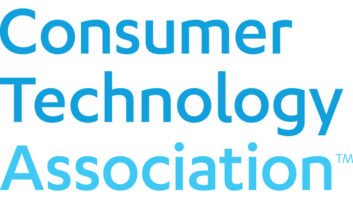
The Consumer Technology Association (CTA) has announced its first-ever Trade Week, bringing CTA members to Washington, DC to share their stories on the effects of ongoing and proposed tariffs with members of Congress and the Administration. Additionally, as part of this members-only event, CTA will release updated data and insights and kick off an omnichannel ad campaign.
“Tariffs are taxes paid by Americans,” said Gary Shapiro, CEO and Vice Chair, CTA. “Higher tariffs don’t just affect businesses, startups, and founders—they’re a pocketbook issue for American families, potentially raising the cost of the tech Americans love and rely on daily. While this Administration is rightly focused on jobs, data shows these tariffs are more likely to hurt industry and add to inflation, rather than help Main Street America thrive.”
Drawing on data from Trade Partnership Worldwide LLC, revised data now shows that Administration tariff actions may increase prices on specific popular consumer technology products, and analysis suggests that American consumers face a potential drop in purchasing power of up to $123 billion annually if current and announced new tariffs take effect and are fully passed through to retail prices on ten everyday technology products.
Technology prices could rise on:
Video game consoles: ▲ 69%
Laptops and tablets: ▲ 34%
Monitors: ▲ 32%
Smartphones: ▲ 31%

This update builds on earlier research from January 2025 and September 2024 to reflect recent actions by the Administration, including baseline tariffs of 10% on all imports and additional proposed tariffs ranging from 11% to 50% on trading partners.
“These new figures show sweeping tariff policies could increase consumer costs and hurt the broader U.S. economy,” said Ed Brzytwa, Vice President, International Trade, CTA. “We encourage policymakers to engage with industry and consumers to ensure tariffs and trade measures are targeted, effective, and economically sound.”
The updated estimates reflect a scenario in which the current 10% baseline tariffs remain in effect and suspended “reciprocal tariffs,” which are stacked on top of existing Section 301 and International Emergency Economic Powers Act (IEEPA) tariffs, on July 9, 2025, resume after a 90-day pause. Other Section 232 investigations into semiconductors, electronics, copper, and critical minerals could further increase import costs for technology products and manufacturing inputs.

Insights from the updated analysis include:
- Consumer purchasing power could decline by as much as $123 billion per year, depending on how tariffs are implemented and how supply chains respond.
- Estimated economic losses could reach as much as $69 billion annually, even after accounting for potential reshoring and new domestic production.
- For every $1 in gains to domestic producers, consumers may lose up to $16 in spending power.
CTA is committed to promoting its Innovation Agenda, working with stakeholders and decision-makers to inform trade policy that balances national interests with consumer affordability and economic growth.
Trade Week is a members-only event. If you would like to become a CTA member, visit www.cta.tech/membership.
Learn more at CTA.tech.
About Consumer Technology Association (CTA)
As North America’s largest technology trade association, CTA is the tech sector. Our members are the world’s leading innovators – from startups to global brands – helping support more than 18 million American jobs. CTA owns and produces CES – the most powerful tech event in the world.













